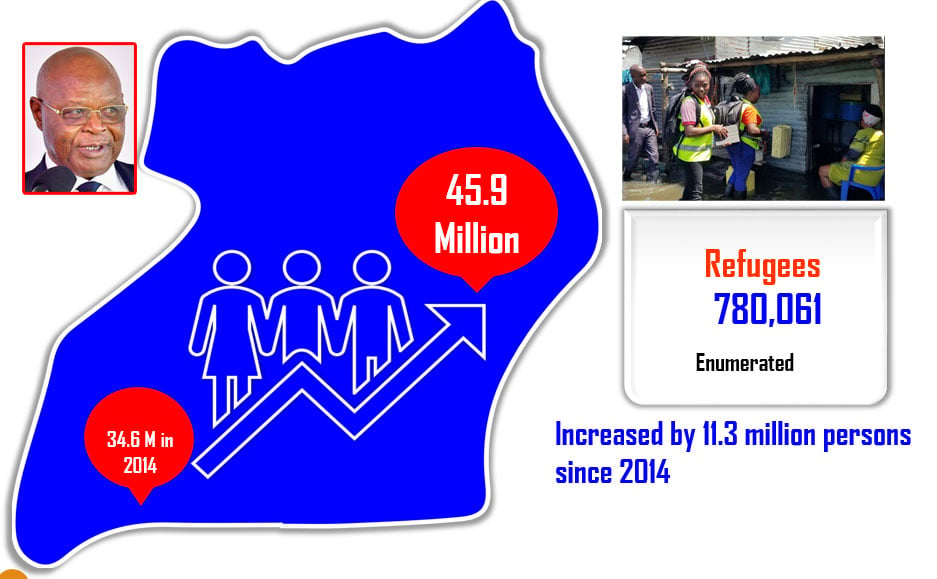Prime
Importing Cuban doctors is okay, but we must build our own system
I have great memories of the role that Cuban doctors played in rebuilding our healthcare system after the 1981-86 ‘Bush War’. At the peak of the HIV/Aids pandemic, a country emerging from a civil war that had left many hospitals, clinics and schools destroyed, Cuban doctors came to our rescue.
I remember a Dr Lorenzo, who treated many National Resistance Army comrades (now Uganda People’s Defence Forces). He worked with almost nothing and was paid so little but he was there at a moment’s call, to treat, comfort and give hope to friends who were dying of Aids.
Anti-retroviral drugs were out of reach then. Ugandans, we must forever be grateful to Cuban people and the Cuban government.
Today, 31 years later, Uganda is a stable country, whose economy has been growing steadily. We should be aiming to achieve Universal Health Coverage, which is Sustainable Development Goal number 3 by 2030. This requires a sustainable and long-term investment in the health work force and the health system, the government must give the health of all Ugandans more priority.
The NRM government must do three things to build a sustainable health system for all Ugandans:
Train the Ugandan medical workers, especially doctors, nurses, lab technicians, midwives, pharmacists and healthcare managers. Being Ugandan, they will plan, manage and deliver sustainable health services;
Improve remuneration, working conditions and other incentives for public health workers to make the medical profession attractive for both training and retention of staff to stop them from migrating internally to the private sector or externally to rich countries;
Invest in the health sector infrastructure, medicines and medical supplies, health information systems and workers so they have the means to deliver proper healthcare.
However the NRM government has to increase its spending on health from 11% of total budget currently to at least 15% as it committed in the Abuja Declaration. No country has achieved or moved towards universal healthcare coverage without fundamental government financing.
In fact, most sustainable and equitable health services are mainly funded by governments. Sin tax like taxing tobacco, alcohol and processed sugary and salted food has been used to generate revenue for healthcare by many countries.
Given the severe shortage of health workers, the ministry of health should carry out ambitious reforms such as providing in-service training to all current staff. Cuban doctors can help in the training.
The ministry can implement a wide policy of Primary Health Care through massive training of Community Health Workers (CHWs) and establishing a functioning referral system to support the CHWs. Ethiopia managed, in a short time, to train and deploy thousands of CHWs who implemented basic health services that reduced maternal and child mortality. It should provide free services such as essential medicines at the points of use to help poor people including millions of unemployed youth access treatment.
The government should scale up public health services and regulate the private sector as it does not score highly on effectiveness, efficiency and equity. There are too many quack health practitioners out there playing with people’s lives and cheating the sick poor because of corruption and weak regulation. We need both long and short-term plans. There are circumstances that warrant seeking external support. Uganda could seek assistance from Cuba under such a situation. However, in seeking Cuban support, strict criteria must be applied. The Cuban doctors should be used as a temporary gap filling mechanism. We have done this before when we were in the post-conflict reconstruction phase after the Bush War.
Cuban doctors played a significant role in the response to the recent Ebola crisis in West Africa. So, Cuban doctors can be invited to fill critical gap areas as the government builds them up quickly.
However, funding Cuban doctors must not be at the expense of financing other activities in the health sector. For example, their funding must not come from the wage budget of Ugandan health workers or from funds for other health services like medicines, infrastructure or specific programmes.
It would be counter-productive to do that. Wages of Cuban doctors must bear relevance to wages of our national staff. A huge wage difference would have a negative impact on performance and retention of our national staff and therefore on the sustainability of our health system.
We have a crisis in our health care system today. Ugandans are justifiably aggrieved when they see politicians and senior public officials or their family members being flown abroad for medical treatment at a huge cost to the taxpayer, while the majority poor citizens cannot get the most basic health services. It’s time the NRM government prioritised the health of Ugandans.
Ms Byanyima is the Executive Director of Oxfam
International and former Member of the Ugandan Parliament.




